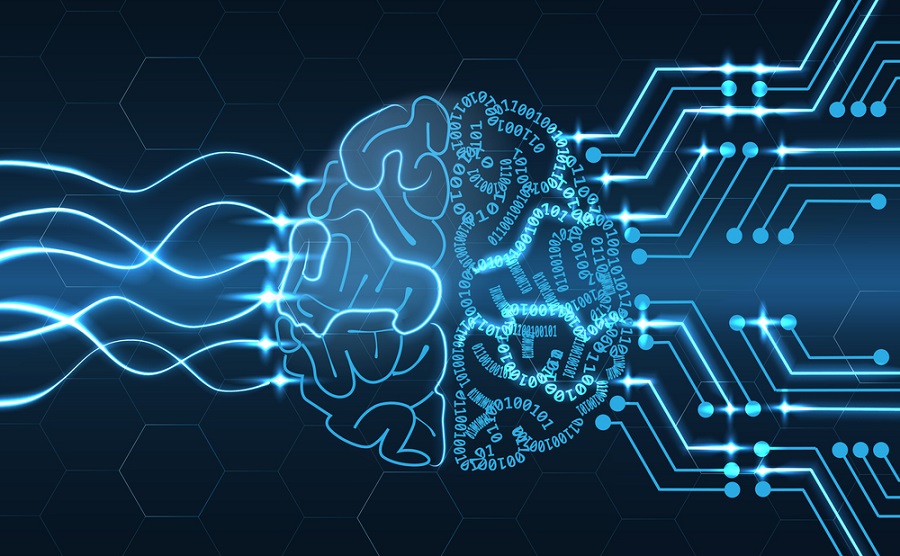Related Articles
Correlation between AI and ERP. The presence of artificial intelligence on the software market is a new phenomenon, but the waves are already felt.
We used to know artificial intelligence only as what used to powerful allies and enemies in a video game; we know that artificial intelligence ran the robots building cars in an automated working line assembly. Still, we have only recently begun to know of artificial intelligence as the force multiplier in a business plan.
The main selling point of ERP software is operational efficiency, and this makes ERP systems the best grounds for the development of new artificial intelligence systems for business use.
Recent advancements in AI and machine learning have shown near-limitless potentials for ERP vendors and users both.
Artificial intelligence-enabled ERP systems will soon significantly impact, and the heart and soul of daily mundane operations as AI will be taking over more routine tasks.
If you thought ERP systems kept employees and resources free for better use, artificial intelligence-enabled ERP systems would take it a step further, and operational costs will be further reduced.
Thus, artificial intelligence can augment people’s capabilities and the effectiveness of the organization as a whole.

Correlation Between AI and ERP
ROLE OF AI IN ERP SYSTEMS
Throughout the life cycle of the ERP system technology itself, it has been seen that many organizations have continued to struggle with turning data into meaningful information and decisions.
In terms of a general saying, ERP systems can make the collection of data 100% easier. Still, it cannot do the same for turning data into meaningful information and decisions if the human operators are not equipped to deal with it.
This is a common reality owing to the large volumes of complicated data businesses nowadays have to handle.
The core principle of any artificial intelligence system is in terms of its practical application with things such as machine learning and natural language processing.
It means that the AI system is continuously working and improving itself to work behind the scenes of the business process.
In this way, artificial intelligence in ERP systems can recognize patterns and automate routine tasks much more efficiently than the default.
The increased efficiency also comes with greater functionality and options for more insight into a business’s data bank.
EXAMPLES OF POTENTIAL AREAS FOR IMPROVEMENT BY AI
1 Customer service: The customer interaction methods and processes are integrated with the work order management process in an artificial intelligence-enabled ERP system.
Drawing data from work records and looking for new patterns to follow, it identifies one or a few and learns from it.
The AI then compares this with the nature of the customer inquiry and then assists the planning and scheduling of the work.
It is done by searching for the best possible outcome for both the organization and the customer through the consideration of variables like the earliest possible date of delivery, the best method for delivery, the recommended form of packaging, and so on.
It would turn out to be a godsend when the organization is put under intense pressure from several or more than several customers attempting to acquire services simultaneously.
In this case, the AI would find the optimal prioritization order while also providing the efficiencies discussed earlier.
2 Maintenance: Predictive maintenance is slowly becoming more and more of an easily executable process with artificial intelligence, which triggered by time, events, or meter readings. All this data, combined with records of past maintenance histories, will result in planned, scheduled work.
Predictive maintenance makes heavy use of real-time information whose collection is also improved by the AI as all the components and the integration between those components that feed the overall system the AI itself runs this real-time information. Predictive maintenance has the objective of reducing total maintenance costs.
On the flip side, the AI can help service technicians with the in-depth root cause analysis reports for preventative and corrective maintenance issues as the AI similarly acquires an in-depth knowledge and understanding of the mechanisms of the afflicted equipment through machine learning.
The depth of the knowledge also goes as far as knowing how the equipment in question performs in comparison to other equipment of its type.
Every possible type of source of all this information is considered, from inspection reports and work orders to OEM specifications and reports.
3 General business operations: These are the primary tasks performed by artificial intelligence as part of an ERP system.
AI can automate all quarterly and monthly financial management processes by automatically verifying reports for accuracy and measuring the account balances between all departments and systems.
The AI easily performs this by seamlessly connecting sales, inventory, and accounting, a difficult task to perform by the mind and hands of humans. Artificial intelligence is designed to handle massive workloads and calculations at lightning-fast speeds.
Artificial intelligence can also detect inefficient processes in manufacturing and suggest cost-cutting solutions based on data analysis from the industry as a whole and best practices.
The predictive diagnostics enabled by these artificial intelligence systems let you clearly identify processes that use too much energy and thus save resources.
Based on all this, artificial intelligence also augments the duties of the human resources department through the employee information database that the organization maintains.
It can automatically track, measure, and compare the efforts of each employee. It can even identify which employees need a raise and which employees require more training, and these features also translate very well overboard to the recruiting process as it can analyze data on the skills and experience of the applications.
CONCLUSION
Artificial intelligence’s future in the business world is overwhelmingly bright even though it is a brand new frontier. However, as it is a brand new frontier, after all, organizations must be careful in implementing it as it can inevitably fail. In case of success through, barriers will be broken, and the sky will be reached.
Syncoria is a digital transformation firm based in Canada and is an official Odoo Ready partner.




